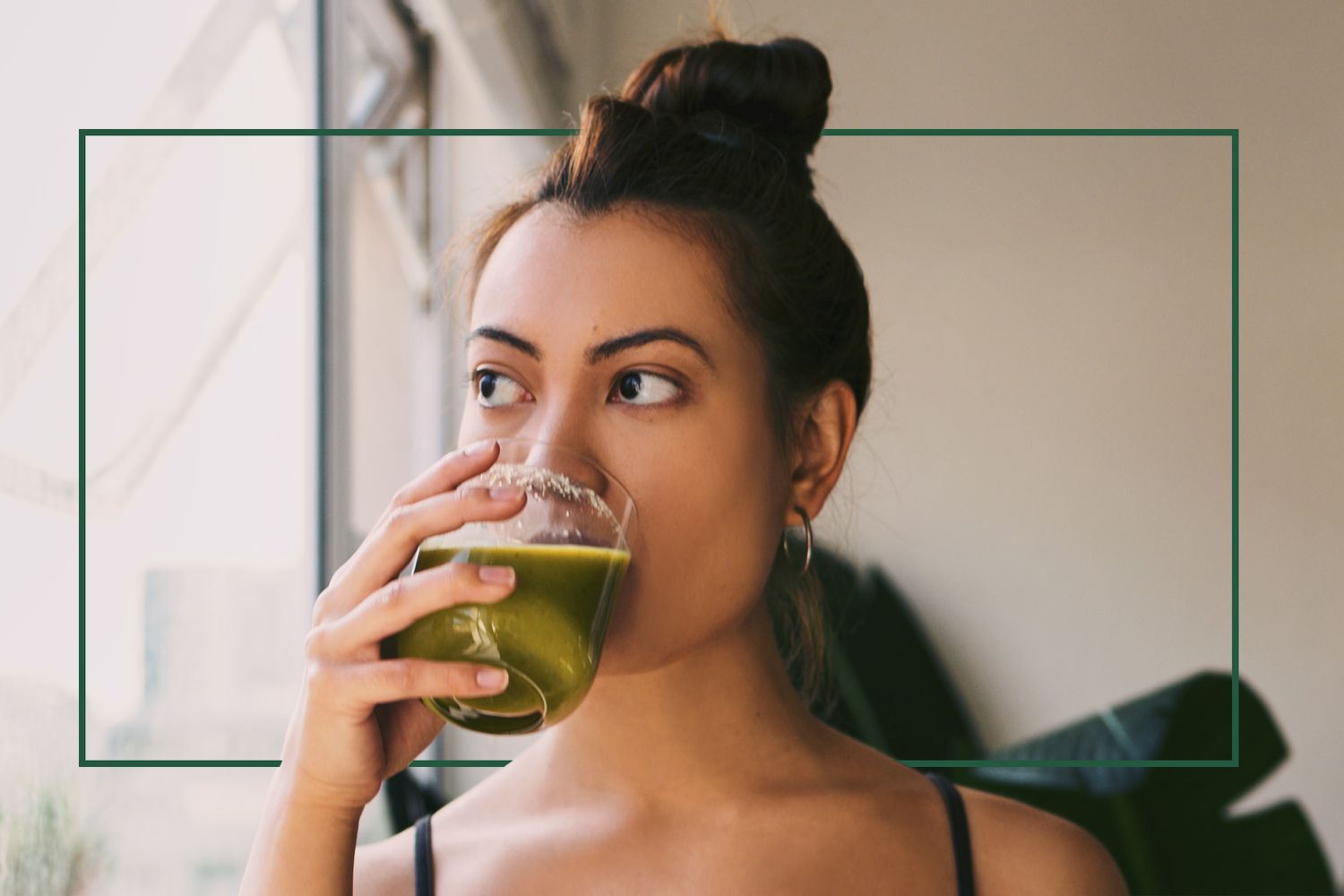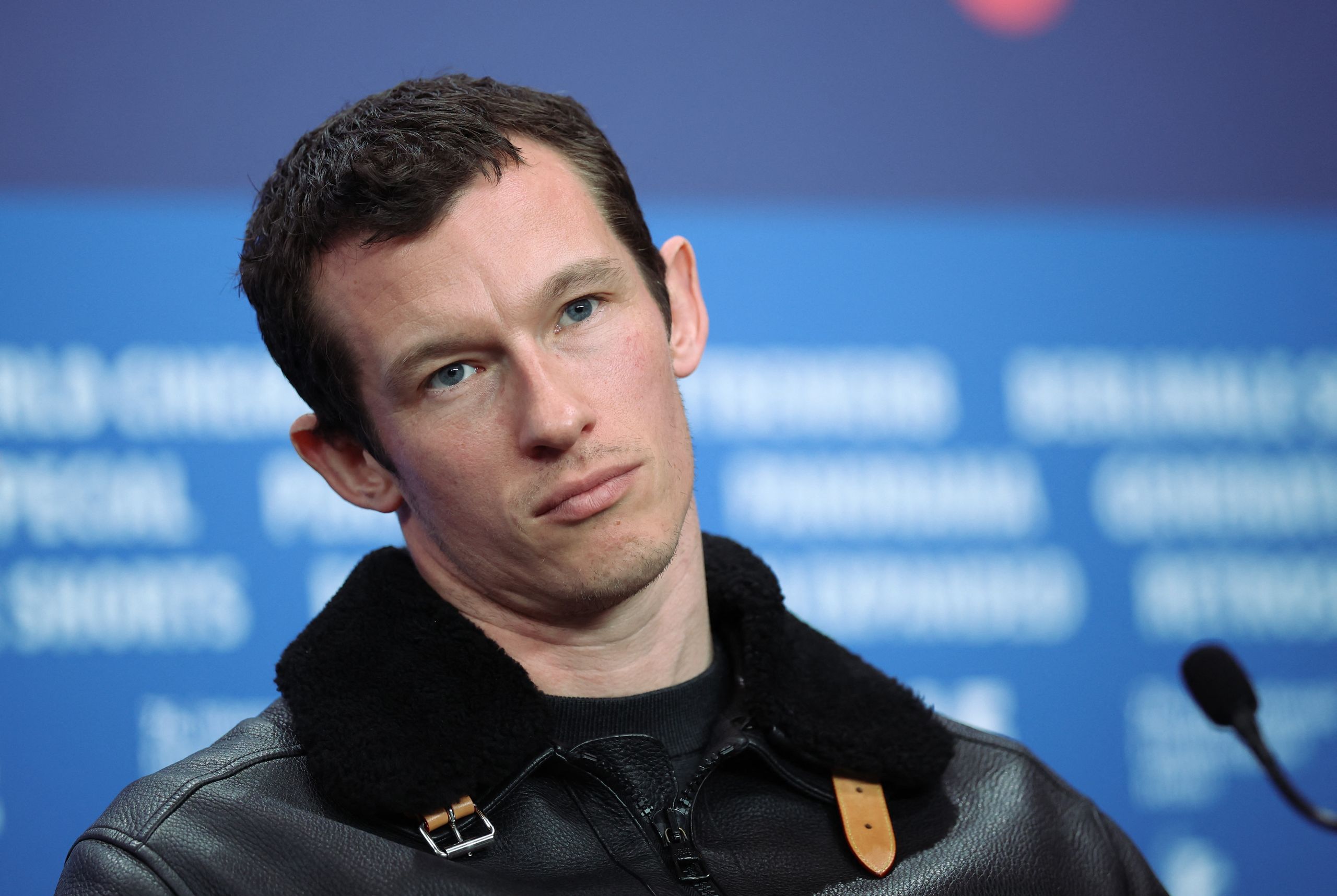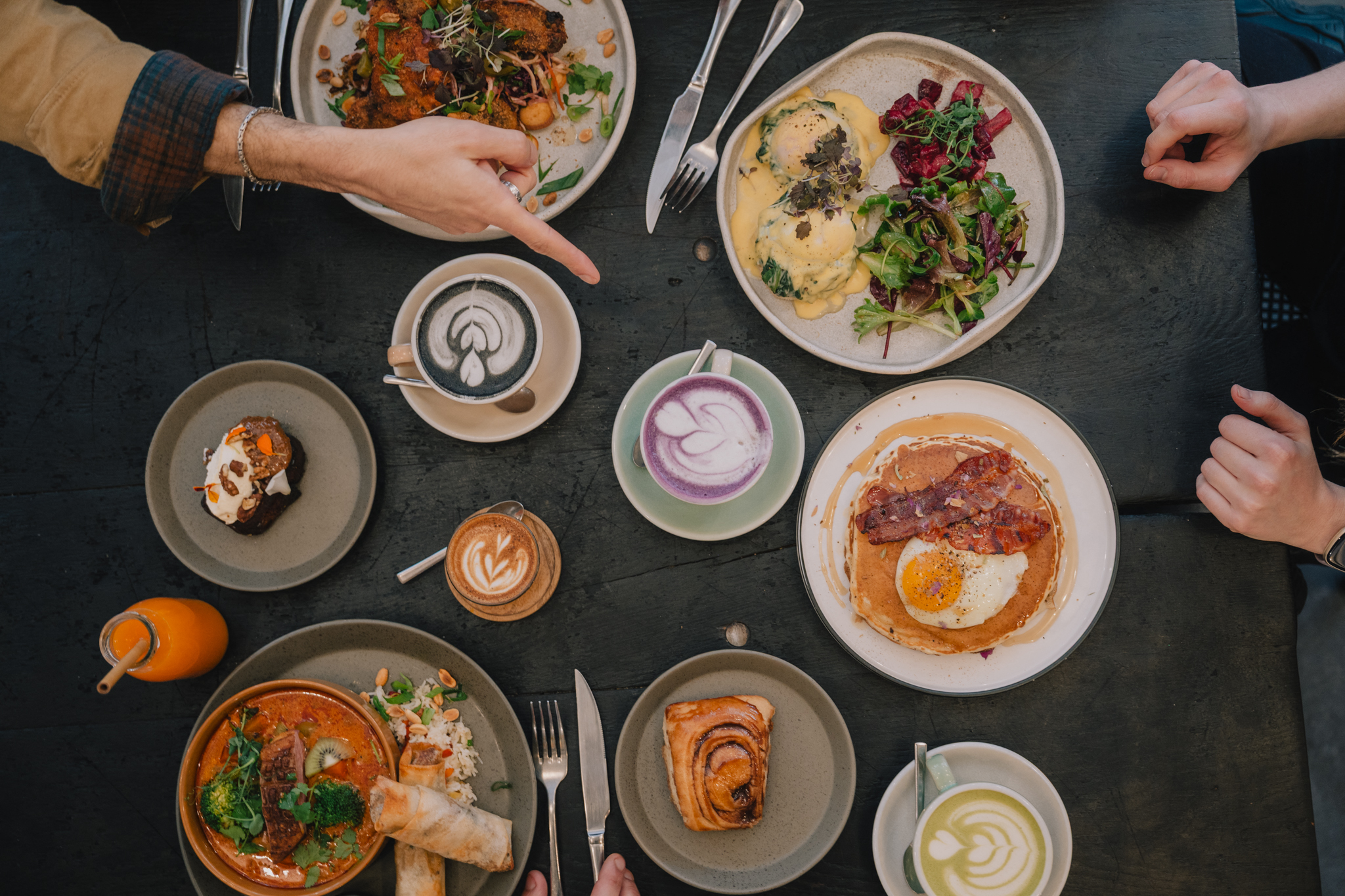¿Por qué estamos volviéndonos menos saludables cuando la cultura del bienestar es tan omnipresente?

Una nueva encuesta de lululemon revela una "paradoja del bienestar", en la que decimos que queremos estar más saludables... pero en realidad estamos cada vez menos. Aquí te mostramos cómo superar esta contradicción para que puedas vivir más fuerte y por más tiempo.
Ya sea estableciendo la ambiciosa resolución de Año Nuevo de hacer ejercicio la primera cosa de la mañana 5 días por semana o prometiendo que vas a pedir una ensalada cuando salgas a cenar con amigos después del trabajo, muchos de nosotros hemos tenido planes de salud bien trazados... solo para no cumplirlos. Oye, lo entendemos: El llamado del botón de repetición o la hamburguesa y las papas son fuertes algunos días, y la vida también está hecha para disfrutarse.
Pero este abismo entre la intención y la acción está lejos de ser un evento aislado, y el efecto dominó de esa dicotomía nos hace sentir completamente derrotados, según los hallazgos del Informe Global de Bienestar 2023 de lululemon. La marca de ropa deportiva comenzó a publicar informes anuales en 2021 para tratar de resumir cómo se sienten alrededor de 14,000 adultos de todo el mundo acerca de su salud física, mental y social.
Podrías pensar que, dado que era el momento ideal de la pandemia, las respuestas colectivas en 2021 habrían sido al menos optimistas, especialmente porque estamos teniendo muchas más conversaciones sobre la salud holística, la inclusión y tenemos más recursos que nunca para difundir información relacionada con el bienestar.
Sin embargo, uno de cada tres encuestados en la encuesta de lululemon de 2023 admiten que su bienestar está en realidad en el punto más bajo de su vida, incluso cuando más del 67 por ciento considera su salud como una prioridad principal. De hecho, apenas el 12 por ciento de los encuestados sienten que su bienestar está "donde debería estar".
Entonces, ¿por qué existe una disparidad tan grande entre dónde estamos y dónde queremos estar en cuanto al bienestar, y cómo podemos mover la aguja sin cambiar por completo nuestras vidas? Hablamos con un entrenador, una nutricionista y un psiquiatra en busca de respuestas.
Esto podría parecer un cuestionario simple, pero incluso Gail Saltz, MD, profesora asociada clínica de psiquiatría en el Hospital New York Presbyterian, el Colegio Médico Weill-Cornell en la ciudad de Nueva York y la presentadora del podcast ¿Cómo puedo ayudar? de iHeartRadio, reconoce que "es complicado".
El Diccionario Oxford de Inglés define "bienestar" como "salud y felicidad general" en los ámbitos emocional, físico y psicológico. Ese aspecto multifactorial es fundamental, Corey Lewis, CPT, CSCS, ex jugador de fútbol profesional con sede en la ciudad de Nueva York, entrenador personal certificado y cofundador de la aplicación de salud mental y bienestar 1AND1, le dice a SHAPE. "Las personas a menudo se centran únicamente en la salud física mientras descuidan su bienestar mental y emocional", dice. "La salud mental y la salud física están interconectadas, por lo que descuidar una puede tener un impacto negativo en la otra".
Si no tienes bienestar mental, es decir, si estás luchando con un estado de ánimo bajo, alta ansiedad u otro factor estresante, no te sentirás bien, explica la Dra. Saltz. Estos sentimientos se reflejan en cuán sociable te sientes y en cómo te mueves y alimentas tu cuerpo. "Cuando las personas priorizan el bienestar, a menudo no se refieren a recibir tratamiento para problemas de salud mental, se refieren a comer una dieta más equilibrada, dormir mejor, hacer más ejercicio o, en estos días, seguir una moda de 'bienestar' en TikTok", dice la Dra. Saltz.
Ese último aspecto crea un gran problema, ya que existe la posibilidad de tanta desinformación que podría no estar ayudándote. Las tendencias de TikTok pueden, de hecho, hacerte daño, o al menos pueden consumir tu valioso tiempo y dinero haciéndote creer que estás haciendo algo positivo por tu bienestar cuando no lo estás. (Ahem, "baile para perder peso" y sorber en seco...)
"Creo que este dilema está relacionado con la falta de acceso a información real basada en la ciencia, el acceso a un buen tratamiento y el hecho de tener una realidad negativa demasiado presente en la vida", dice la Dra. Saltz. La comparación en las redes sociales también es muy real, agrega Roxana Ehsani, M.S., RD, CSSD, una dietista deportiva certificada por la junta con sede en Miami.
Quizás un influencer de bienestar, un "entrenador de salud" o una celebridad a la que sigues en las redes sociales sigue un estricto horario de meditación, entrenamientos intensos y sorber batidos de 17 dólares de Erewhon... todo antes de empezar su día de trabajo o de escuela. "La persona típica puede que no tenga tiempo por la mañana para hacer estas cosas antes de un día ocupado y, por lo tanto, puede que piense que no pueden alcanzar realmente el bienestar", dice Ehsani. "O una persona puede necesitar ayuda para manejar su salud mental, pero no tiene los recursos o el dinero para buscar apoyo profesional". (En caso de que no lo hayas visto, así es como las redes sociales de las celebridades afectan tu salud mental y la imagen de tu cuerpo.)
Atrás en 2021, la gente sentía que la pandemia podría ayudar a explicar sus desafíos de salud mental, física y emocional de alguna manera. A medida que las restricciones de quedarse en casa y las amenazas de salud relacionadas con el virus disminuyeron, ¿no nos sentiríamos mejor?
But in 2023, “there is no longer the belief that the pandemic is responsible for the extreme stresses many people face, whether they are financial, racial, cultural, relational or political,” says Dr. Saltz. “Those stresses are still there, but they are the current ‘normal,’ so there is not an anticipation of reprieve and there is still the impact on mental and physical health.”
As a result of less-than-stellar physical, emotional, or psychological wellness, the average respondent has missed 5 days of work or 7 days of school over the course of the past 12 months. “It does take time and money to implement many of the common healthy habits, and many people are stretched to their limits. Many people are financially strapped. Plus we’re spending a lot of time on social media, which mostly detracts from mental well-being. It’s also highly addictive, so it's difficult to cut that out to have more time for real and helpful attention,” says Dr. Saltz, on wellness goals or anything else that’s important to you.
There are signs of progress and hope, though, and those who report they are rocking their overall well-being can give us some cues about how we can all make our ambitions a reality…for real this time. Here are some strategies to try out if you're looking to boost your well-being.
Exercise with others when possible, and when you can’t, try flipping on some positive tunes to push you forward. “Movement can help boost your endorphins, powerful feel-good hormones, which can help support a better mental outlook,” explains Ehsani. Other people help keep you accountable. “Loneliness takes a major toll on well-being, and exercising with others can very much help,” adds Dr. Saltz.
lululemon’s survey reveals that about 40 percent of those in the highest well-being category are spending more time with loved ones than pre-pandemic. Those in the lowest wellness ranks? About 30 percent. “Quality relationships are what fights loneliness; a major public health issue. Close relationships are a top priority for happiness,” says Dr. Saltz.
Expressing all emotions, not just the positive ones, is another key differentiator where the well-being winners stand out, lululemon found. Being able to talk about distressing feelings offers relief from the burden, and might spur you on to seek professional support if you need it.
According to Dr. Saltz, “Keeping your emotions under wraps tends to make you feel more isolated, alone, and worse overall.” If you find that you’re experiencing any symptoms of depression, experience high levels of anxiety, or would simply like an unbiased source to talk things out with, seek out a credentialed psychologist or psychiatrist, Dr. Saltz recommends. Consider one of these 8 online therapy services, or keep these tips in mind for how to find budget-friendly therapy near you (or digitally).
Are you not sticking to your health goals because they’re simply not the right health goal for you? “The key lies in building strong habits that align with your goals. By creating a solid foundation of healthy routines, you'll develop laser-like focus and be able to navigate through any distractions that come your way,” says Lewis. Skip the SMART goals this time and instead find a FUN goal that aligns with your aims.
An April 2018 study in Frontiers in Psychology suggests that eating more fruits and vegetables might help improve your mood. If you’re feeling a bit low, try adding just one more serving each of fruits and vegetables into your day, such as a side of Brussels sprouts with dinner or a bowl of berries at snacktime, Ehsani advises. “Once you've successfully added at least one of each into your day, try to keep this up. When you feel like you’ve mastered this, start shooting for two servings of fruit and two servings of veggies each day,” she says.
As we mentioned, social media can sidetrack your intentions, but it can also offer a way to connect with others, find recipe inspiration or simply wind down. So you need not delete every app. Instead, “have a plan for each type of distraction you may have. One way to avoid being distracted from your goals is to use apps that help minimize the time spent on your phone,” Lewis says. Try an app like one sec, AppBlock or simply adjust the time limit settings within your specific apps you tend to overuse.
A long and strong life is a marathon, not a sprint. Try to be patient with yourself, and try to notice and commemorate small victories along the way. “Change takes time and consistency,” Lewis confirms. “Think about becoming just 1 percent better every day rather than trying to overhaul your entire routine.”
By adopting a holistic approach to health—with an eye to mental, physical and social well-being—implementing these expert-approved tips, you’ll be well on your way to a healthier and happier 2024.




